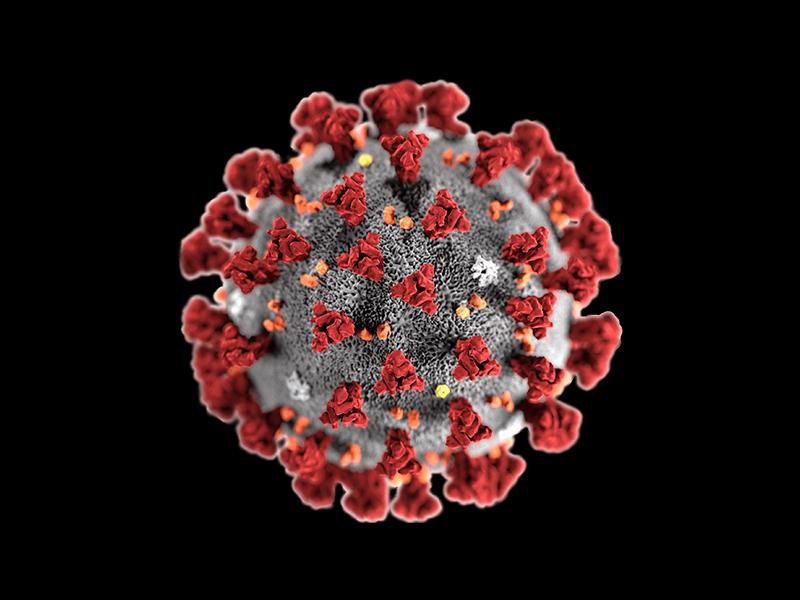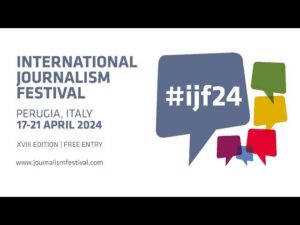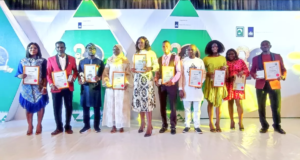What role can the media play in curbing misinformation and disinformation on COVID-19? This was the question addressed during a recent tweet chat by CLEEN Foundation as part of its Public Safety and Security Tweet chat series.
The panellists were Director of International Press Centre, Lagos, Lanre Arogundade, Lead Presenter/Producer BBC Media, Affi Bassey and Executive Director of Institute for Media and Society, Dr Akin Akingbulu.
Besides tackling the rapid spread of the coronavirus, Nigeria has contended with a lot of misinformation & disinformation especially on various social media platforms, what are the driving factors behind this?
Bassey: One of the driving factors I’d say is not enough information given out by those who are responsible for giving out accurate information. In my work producing content for Radio and TV stations, one of the hardest tasks is getting people, especially those in authority to participate in our interviews.
It’s most times hard. If you do not talk, there will be an information vacuum. And that vacuum can be filled by anything. Government non-response to issues at the right time may also be a factor. Addressing issues that concern the nation on time, no matter how minute it may seem, is one important way of quelling fake news.
Arogundade: Covid-19 pandemic is a crisis situation and during the crisis, truth is always the first casualty. Many Nigerians are witnessing this kind of pandemic for the first time the last one being 1918-20 hence a panic situation has also arisen, it would also seem that the government has trust or confidence deficiency hence people will rather believe speculations as against official information.
For example, one would have expected health communication experts to be part of and central to the operations of the Presidential task force on COVID-19. Attacks on journalists covering COVID-19 also give the impression that government has something to hide Ignorance also drives disinformation and misinformation and what we have also seen is a situation where some people share information whose authenticity they cannot vouch for, COVID-19 and panic reaction to it have thus fueled all kind of opinions and theories including conspiracy ones.
Some of the fake news relate to what medications can help and the law of survival is driving some to believe in just anything. Let me quickly add that a factor is also that we live in a global village and people get information from multi-sources they want to quickly spread hence World health Organisation spoke of COVID-19 infodemic. There is pandemic and there is infodemic. Both the pandemic and the infodemic have to be simultaneously managed and that is posing a big challenge for everyone.
READ ALSO: JOURNALISTS SHOULD PRACTICE WHAT THEY ARE REPORTING
Both make social media to thrive on the sensational side presenting the problem of disinformation and misinformation. The other driving factor is the apparent lack of preparedness by the government and we have seen some state governments living in self-denial.
Akingbulu: Infodemic: loads of information, much of which is false. The ascendancy of citizen communication. Pre-eminence of vested interests. Foreign actors, also, who have diverse interests to protect. Some kind of polarization in our system. People come from various backgrounds with positions to guard and project. Let me also pause here.
Are the current front line government actors, NCDC & other federal & state agencies leveraging the social media enough to breach information gap on COVID-19?
Bassey: I’d say they are doing a lot, especially NCDC. I see their active social media handles and how much information they try to give out every day on the TV. There’s always room to do more. From my work as a programme producer, we have come across people who still doubted the existence of COVID- 19. And that means, there’s still work to be done. The message is everyone is in this together, and until everyone is carried long, the fight against COVID-19 may take longer.
Arogundade: The NCDC and some of the state governments like Lagos have leveraged the social media and have effectively used twitter for example for information dissemination such that they are often quoted as sources in media reports, But there could be more proactive engagement wherein beyond figures they also respond to issues of concerns to citizens. However, we may need a more comprehensive study on the impact of their use of social media on Covid-19 behavioural patterns.
However, some critical agencies like the National orientation Agency with offices in all 774 local government areas have not been seen to leverage on social media.
Akingbulu: I think NCDC is trying. They have a good social media presence. The PTF has also recently established its social media presence. The NOA is a major stakeholder agency. It should be strengthened to fly higher. They all need to raise their game. This infodemic is not something to tackle half-heartedly. At the state level, Lagos is making a good outing. It will be good if other states can also strengthen their efforts. I pause on the second question.
What are the major drawbacks caused by misinformation and disinformation in the fight against COVID-19?
Bassey: Let me share one with you. On a recent edition of our programme, Talk Your Own- Make Naija Better, a chat with some people made us realise not many know that there are some vulnerable groups that need to be especially kept safe from getting infected. As simple as that may sound, imagine the danger to lives, this poses if you are ignorant or lack the right information as to what to do to keep yourself and those around you safe. The media as much as they have a big role to play in this, may also be victims, true.
Acceptance and sharing of information without appraising the source of the information first. That is a major drawback. Once it’s shared on an SM platform such as WhatsApp, it goes viral. Nobody bothers to ask the person who sent to you if the person has verified the information. Feels like too much trouble, so it’s easier to forward as-sent and fake information goes viral. We can’t work in unison if there’s misinformation. We will be at loggerheads because there’s no understanding of purpose.
Arogundade: The drawbacks include sharing of false information, the rise of conspiracy theories like linking G5 technology with Covid-19, harmful health practises, non-compliance with health and safety measures stigmatisation and hostile attitude towards victims. The tendency to condemn the conventional media – newspapers, radio and television – as being part of fake news is also one of the backlashes.
Akingbulu: Misinformation/disinformation disunites a population in the face of a common foe. It makes the citizens to move at cross purposes. It causes fear and anxiety among the population. It helps generate scepticism among citizens. And another big problem: it can cause a lack of trust for the government.
In what ways can the government step up its efforts to curb COVID-19 disinformation?
Bassey: With a population of over 200 million people, media and communication are critical means to reach people rapidly and at scale in Nigeria.
From BBC Media Action’s significant experience of public health emergency communication, we know that it is critical to reaching audiences through multiple channels, with trusted, practical and relevant information in a language they understand, from people that influence audiences’ discussions, their decisions and ultimately their behaviour. This is what the government needs to do. The fact is, there is a gap between the government and the media that needs to be bridged. The government needs to trust the media as a veritable tool for communication or disseminating the right info, and not as a challenging rival. However, one of the roles of the media is to keep the government on their toes. And the government needs to realise this for there to be cohesion and a good relationship.
Arogundade: Government should accord the highest priority to the citizens’ right to know to know and know the truth; nothing should be sacred or secret because public support is crucial to the success of COVID-19 fight. COVID-19 information dissemination mechanism must go beyond numbers of infections, discharges, deaths, etc, and extend to accountability and transparency of monies and resources being contributed and being spent on the battle.
The media should be seen as important allies in the dissemination of credible information and to this end attacks on journalists covering COVID-19 by security agents have to stop. Health communication experts must be given wider space to be part of external communication to citizens and engagement with the media.
Media’s crucial role in disseminating information and delivering COVID-19 messages should be properly recognised by the government. The government must also understand that the media is facing economic hardship hence the media should be institutionally supported as part of COVID-19 palliative. Media outlets qualify for a bailout as businesses.
The understanding should be that journalists as professionals working for print, broadcast, online, etc, are better placed to disseminate credible information; not so-called citizen journalists who share information without processing including verification.
Akingbulu: Several ways government can step up.
One: Improved online presence of the agencies managing the containment of pandemic.
Two: Professional and timely packaging and dissemination of information/education materials to counter false information.
Three: Being transparent in its actions, including the provision of data to the public.
Four: Working with technology companies to deal with false information. I rest a little here.
Lastly, how best can the media combat or mitigate misinformation & disinformation on COVID-19 in Nigeria?
Bassey: As a media, own your work. Do your homework, the needed research before putting the info out to your audience. One of the work BBC Media Action does with our partner radio and TV stations is to train them on how to get accurate information from a trusted source that can be quoted. That way anyone can trace where the information came from.
As the Media, know where to go to, to source for the right info, and know-how to direct your audience to:
- Where to go for reliable and correct information about COVID-19
- How to check information received, to find out whether it is correct or not.
- Do not share information blindly, without checking first that it is correct, even if it is entertaining.
Arogundade: Media outlets and individual journalists should not allow the social-media breaking news syndrome to lead them to forget that good journalism rests on the fundamental pillars of the discipline of verification, fact-checking and leaving out when in doubt.
Journalists in conventional media need to monitor social media to correct any circulating false information. There should be greater use of fact-checking tools by journalists so the conventional media can rise above fake news and help to combat it.
The media should also be proactive in responding to and dismissing COVID-19 disinformation or misinformation by making better use of credible sources in state institutions as well as experts in the health and relevant areas. Media proprietors must see the need to invest in capacity building for journalists covering COVID-19 in the vital areas of investigative journalism and fact-checking along with provision of protective wears.
Akingbulu: For the Media, the guiding words should be: professionalism, professionalism and professionalism. They must provide fair and accurate reporting. The must fact-check and fact-check before publishing. They must work in the finest tradition of investigative journalism. They should partner with civil society for continuous up-to-date capacity – building for journalists.






